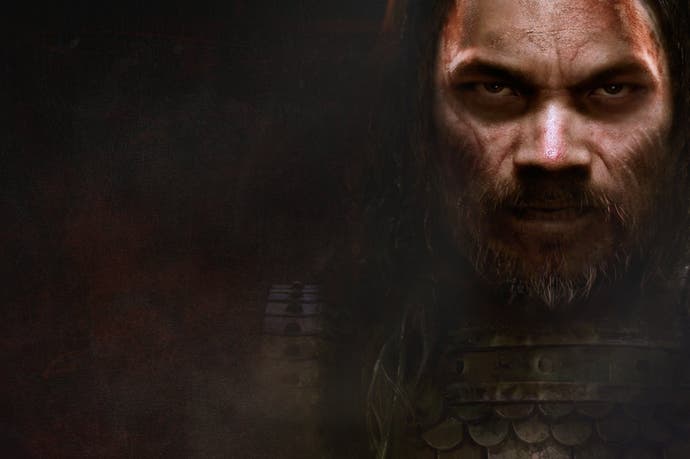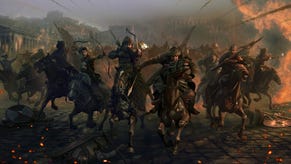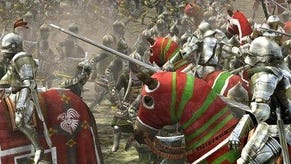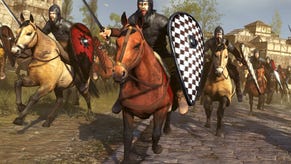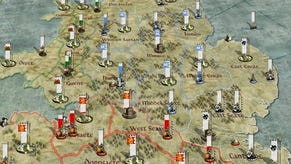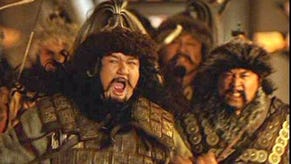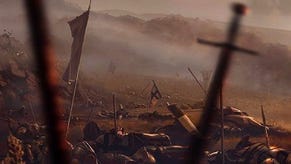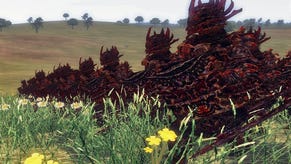Total War: Attila review
Steppe learning curve.
Eurogamer has dropped review scores and replaced them with a new recommendation system. Read the editor's blog to find out more.
In the northern reaches of Europe, the small barbarian kingdoms teeter between oblivion and greatness. To the south, the migratory tribes lie in turmoil; the Alans have grown tired of the other tribes poking fun at their name and now rage against the world with a ferocity that wins them few friends but many battles. There are numerous paths to victory and each faction boasts unique strengths to help get them there, but they also bring with them tough leadership challenges. Decisions must be made in order to balance the hungry expansion of a developing kingdom with the necessity of moving beyond static stone walls to leverage the strengths of a mobile horde.
In the Eastern Empire of the Sassanids, things are quieter and life is undeniably easier. Still, this prosperous and enlightened empire must contend with petty Roman leaders who grasp at their exotic riches to help prop up a faltering regime. The great Roman Empire itself still stands, but as a fractured and fractious beast. The division of East and West has resulted in huge swathes of empire left in disrepair, defended by ill-equipped and unmotivated soldiers who can be tempted away by promises of freedom and glory. What goes up must come down and those who spent weeks building their empire in Total War: Rome 2 can spend just as long trying to prevent its fall.
The Huns cast a shadow over them all. The heat of a thousand fires burn at their back as they sweep down from the north with a thunderous charge and near inhuman might. The disruption and destruction they cause brings with it an opportunity for a strong leader to strike a killing blow on many fronts, and Attila stands ready.
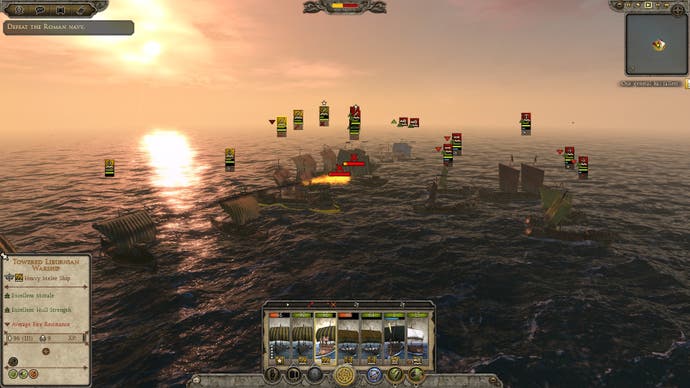
Such variety makes you tingle at the prospect of starting a Total War: Attila campaign story. Each of the ten varied faction threads stretch out before you, inviting you to take up one to weave your own story of military might and political intrigue. It's a shame, then, that while such potential fires the imagination, the relative difficulty of each faction's campaign deters the very experimentation that it appears to promote. Even the Huns, the poster-boys for this particular outing, require a degree of knowledge of the game and its concepts that occasionally borders on prescience rather than good strategy and judgement.
There's nothing inherently wrong with the fact that Attila is a difficult game, of course. Its difficulty curve will give those that stick with it scores of hours of progressive entertainment in the campaign alone but when that difficulty is borne of poorly delivered information and obtuse menu screens it becomes a factor whose frustration undermines rather than one that's exhilarating to overcome.
To Creative Assembly's credit, this is in part because it hasn't rested on its laurels in any one area, enhancing many of Rome 2's systems and introducing others to good overall effect. Political wrangling requires careful consideration of your own family tree, occasionally marrying off a son or daughter to secure friendly relations with a powerhouse neighbour. Family members and individual leaders can be promoted to positions of authority, while agents can help bolster your own power struggles or undertake missions to scupper the schemes of others. While the depth to which individuals can be tailored and their attributes balanced is impressive, it occasionally descends into busywork that takes an awfully long time to feel natural. Much of the menu navigation is eventually learned by rote rather than being revealed through intuitive design as you learn to wield Total War's many abstract systems to your advantage.

Yet wield them you must if you're to manage the faction-specific technology trees and balance an empire's growth against its squalor and debt. Settlement buildings inform the kinds of troops you can recruit and how healthy and prosperous your empire will be, which conveys bonuses to the battlefield. It's easy to raise a new army and throw troops at the enemy, but it's harder to bring those troops home so that they can start to develop characteristics and abilities of their own. However, battles are fluid and troops responsive, meaning the right selection of units can utilise their individual abilities along with environmental factors to devastating effect, provided you can keep track of everything that's going on and identify the strengths and weaknesses of each faction.
Total War: Attila's faction variety is its greatest strength and its most complicated weakness, something particularly evident when waging war online. The campaign can be tackled either head-to head or in co-op, although there appears to be an unwritten requirement to have the same mods or day-one DLC installed as you potential play-mates in order to work alongside them. There's also no way to filter out those whose version doesn't exactly match yours, which can lead to a large number of "incompatible version" errors and matchmaking taking longer than necessary.
Playing with friends is the safest bet, of course, not only because getting lumped with someone of wildly different skill level is no fun for anyone but also because the faction each player chooses determines how quickly things will move. Larger empires, particularly the Romans, can take an awfully long time to effectively manage, while an over-zealous turn timer can be game-breaking for those trying to grapple with huge overheads and complex infrastructure. That said, even early on in the single-player campaign it's not uncommon to wait upwards of 30 seconds between turns as the AI to clicks through all 56 factions.
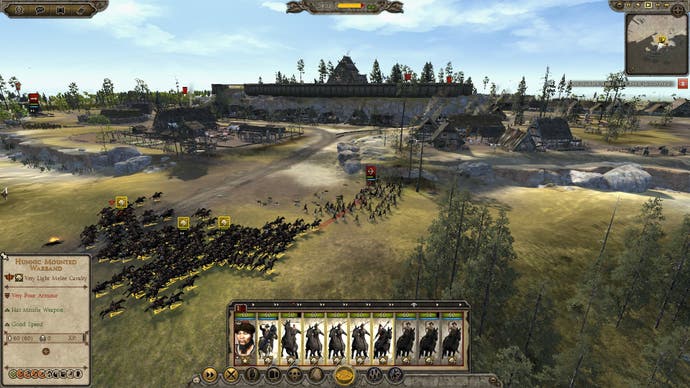
Those that prefer to brandish a sword and leave the politicking to others can jump straight into skirmish battles or the single-player historical battle scenarios. Here, you dispense with the civilised acts of diplomacy and shady espionage to get on with the business of sticking people with pointy sticks. Some unseemly instances of inexplicable lag aside, these battles are generally fast paced and thrilling, provided you can get a number of like-minded people together who don't disconnect as soon as things aren't going their way. The variety of these one-off conflicts also helps promote troop management, understanding of the nuances of a wide-range of units and the advantage of supporting land troops with a handful of off-shore naval units in a way that no other part of the game does.
Total War: Attila is undoubtedly a welcome addition to this 15-year-old franchise and it's a relief to find it stable at launch, but there is clearly room for further optimisation. It's a credit to The Creative Assembly that it is still experimenting and tweaking its systems to achieve the right balance of complexity and challenge, even if a few too many of its concepts fall the wrong side of the frustration/satisfaction divide for a little too long. Still, you need only be mindful of the advertised difficulty level of each of the factions in order to triumph and, through extended play, the excitement suggested by all that early potential does, eventually, come to fruition.
